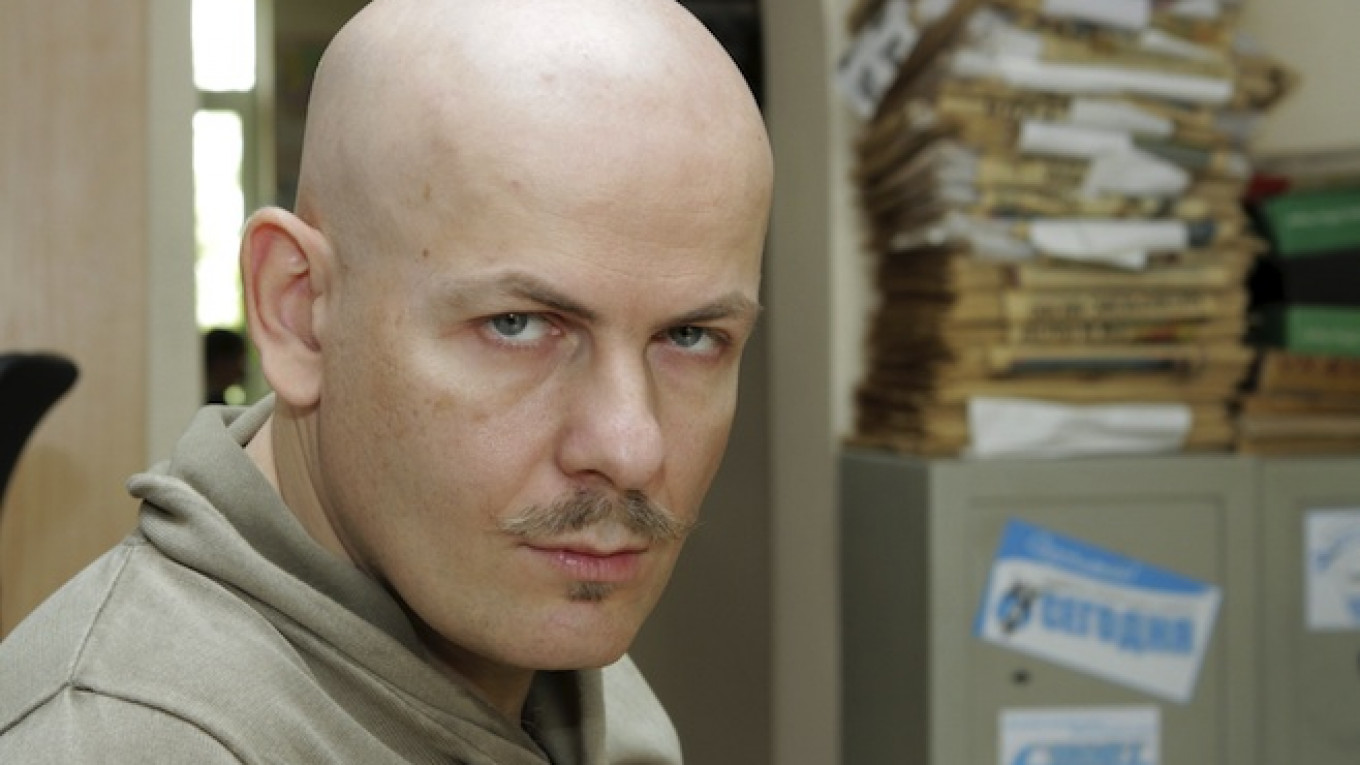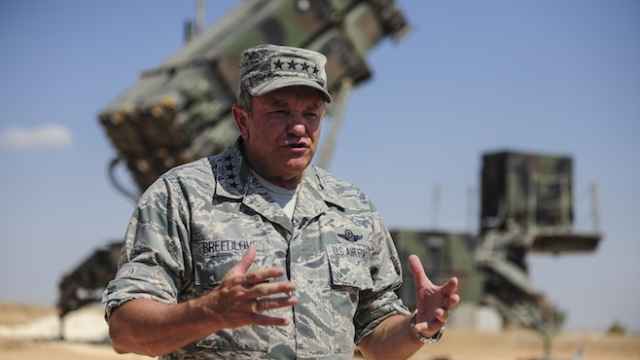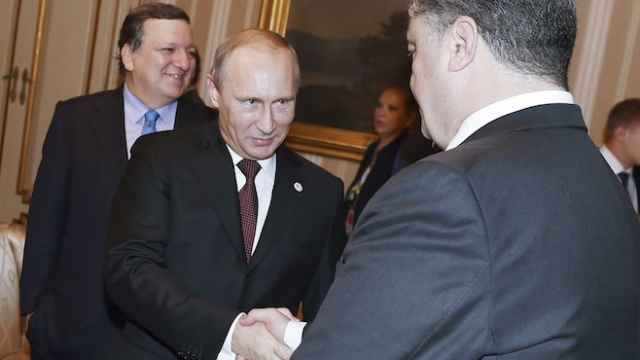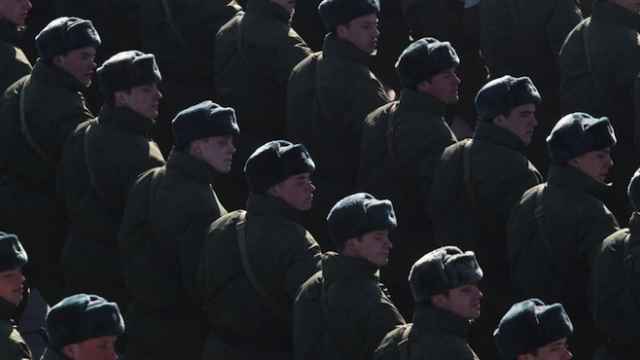KIEV — A Ukrainian journalist known for his pro-Russian views was shot dead on Thursday in Kiev, a day after the killing of a political supporter of ousted Moscow-backed President Viktor Yanukovych, driving up tension between Moscow and Kiev.
Russian President Vladimir Putin said the murders were political while Ukrainian President Petro Poroshenko described them as deliberate acts which "play into the hands of our enemies" and ordered an immediate and transparent investigation.
The killing of Oles Buzina, who expressed strong pro-Russian views in a daily newspaper, and of ex-parliamentary deputy Oleh Kalashnikov were the latest in a spate of mystery deaths among allies of Yanukovych, who fled to Moscow last year.
Ukrainian officials and political analysts suggested they were the work of Russian special forces assassins out to blacken the image of Kiev's pro-Western authorities.
Buzina, 45, wrote pro-Russian opinion pieces for Ukraine's Sevodnya daily, owned by Ukraine's richest businessman Rinat Akhmetov. He ran in last year's parliamentary election on behalf of the Russian Bloc party, but was not elected.
He was shot by assailants from a car in the middle of the day as he came out of the block of apartments near Kiev city centre where he lived.
"Today at 13:20 hrs … two unidentifiable men in masks shot journalist Oles Buzina," the interior ministry said in an online statement.
A video clip showed a man lying on his back, surrounded by police and first aid workers. There was a heavy blood stain on his upper body.
On Wednesday evening, Kalashnikov, 52, a former member of parliament for Yanukovych's discredited Party of Regions, was shot dead inside a multi-storey block as he went up to his eighth-floor apartment.
Mutual Accusations
An interior ministry adviser said both victims played a part in the "Anti-Maidan" movement, which opposed pro-Western protests that ousted Yanukovych in February 2014 and were witnesses in criminal cases relating to pro-Russian activists who attacked protesters on the Maidan in early 2014.
The former president fled to Russia after weeks of street protests against his rule in which more than 100 people were shot dead in Kiev.
Russia later annexed Ukraine's Crimean peninsula and pro-Russian separatists rebelled in the east, triggering a conflict in which more than 6,000 people have been killed.
Two former parliamentary deputies belonging to the Party of Regions were found dead from apparently self-inflicted gunshot wounds in March. Another prominent party worker killed himself in February by throwing himself out of a window and a fourth party member was found hanged.
In Moscow, Putin, during a televised call-in show on Thursday, said Buzina's and Kalashnikov's deaths and other such incidents were politically motivated and accused Kiev of failing to bring anyone to justice.
"We are facing a whole series of such [political] killings in Ukraine," he said, contrasting the killings in Ukraine with the murder of Russian opposition leader Boris Nemtsov in Moscow in March where, he said, the killers had been arrested.
"In Ukraine which claims to be a democratic state and has aspirations towards democratic Europe there has been nothing similar. Where are the killers of these people? Where are the people who carried them out and those who ordered them? They aren't there. In Europe and North America they prefer not to notice this," he said.
In Kiev, political analyst Volodymyr Fesenko said the fact that the two killings took place almost exactly when Putin was holding his meet-the-people phone-in "arouses great suspicion."
"It's as if the proof of political terror in Ukraine was specially delivered to him. These are ritualistic victims for Russian propaganda, although they did not play any serious role in the opposition movement," he said.
Interior ministry official Anton Gerashchenko, speaking on the television channel 112, said he could not exclude that the killings were the work of Russian special forces and he warned that opponents of Kiev's pro-Western authorities "could become the victims of Russian intelligence services."
Without pointing the finger directly at Moscow, Poroshenko said the killings of Buzina and Kalashnikov amounted to a conscious act intended to play Ukraine "into the hands of our enemies."
"It is aimed at destabilizing the internal political situation in Ukraine, at discrediting the political choice of the Ukrainian people," he said.
A Message from The Moscow Times:
Dear readers,
We are facing unprecedented challenges. Russia's Prosecutor General's Office has designated The Moscow Times as an "undesirable" organization, criminalizing our work and putting our staff at risk of prosecution. This follows our earlier unjust labeling as a "foreign agent."
These actions are direct attempts to silence independent journalism in Russia. The authorities claim our work "discredits the decisions of the Russian leadership." We see things differently: we strive to provide accurate, unbiased reporting on Russia.
We, the journalists of The Moscow Times, refuse to be silenced. But to continue our work, we need your help.
Your support, no matter how small, makes a world of difference. If you can, please support us monthly starting from just $2. It's quick to set up, and every contribution makes a significant impact.
By supporting The Moscow Times, you're defending open, independent journalism in the face of repression. Thank you for standing with us.
Remind me later.






